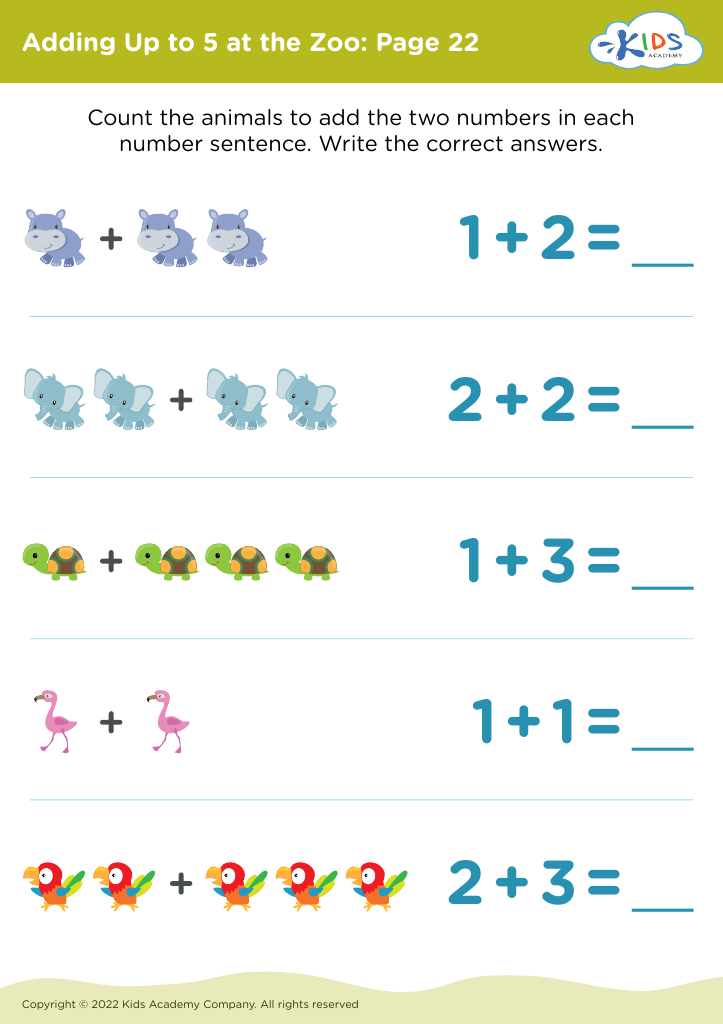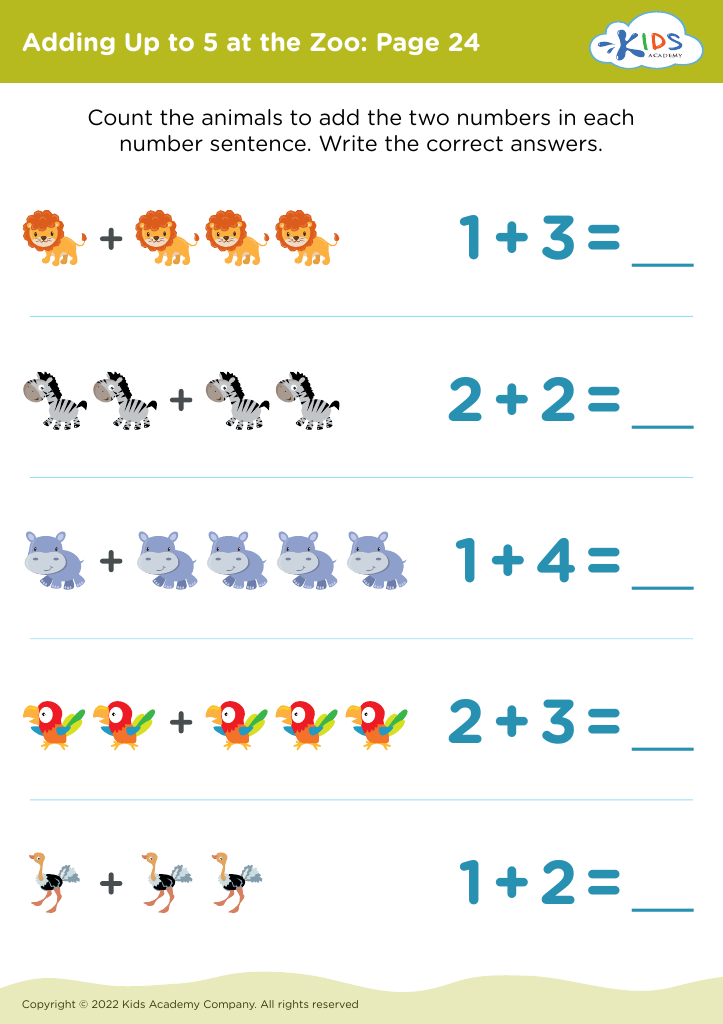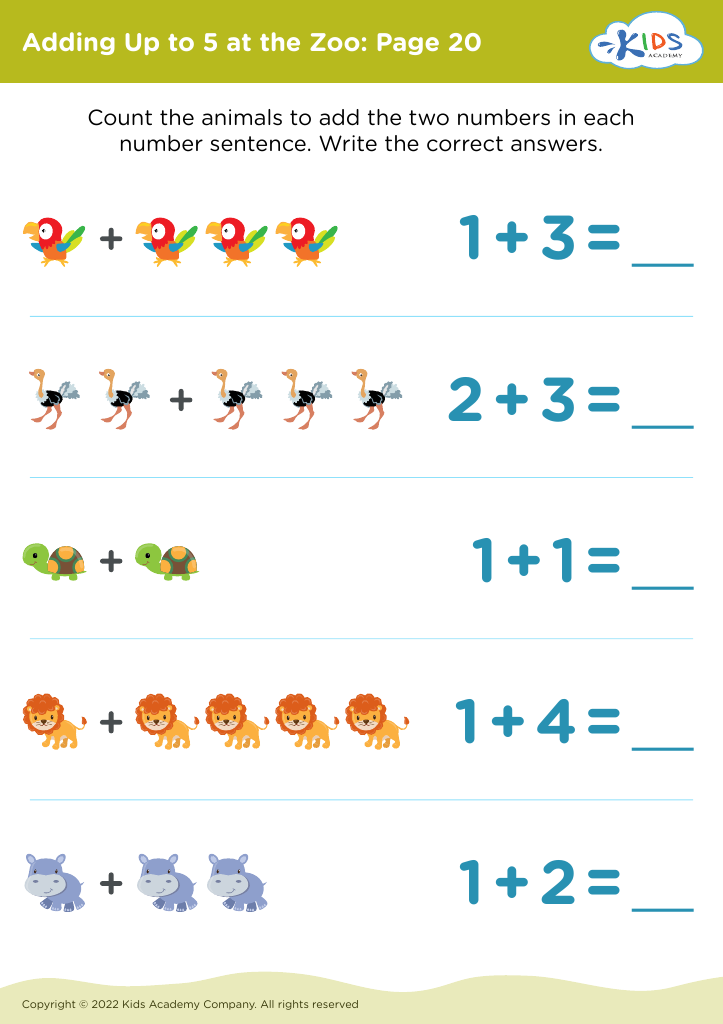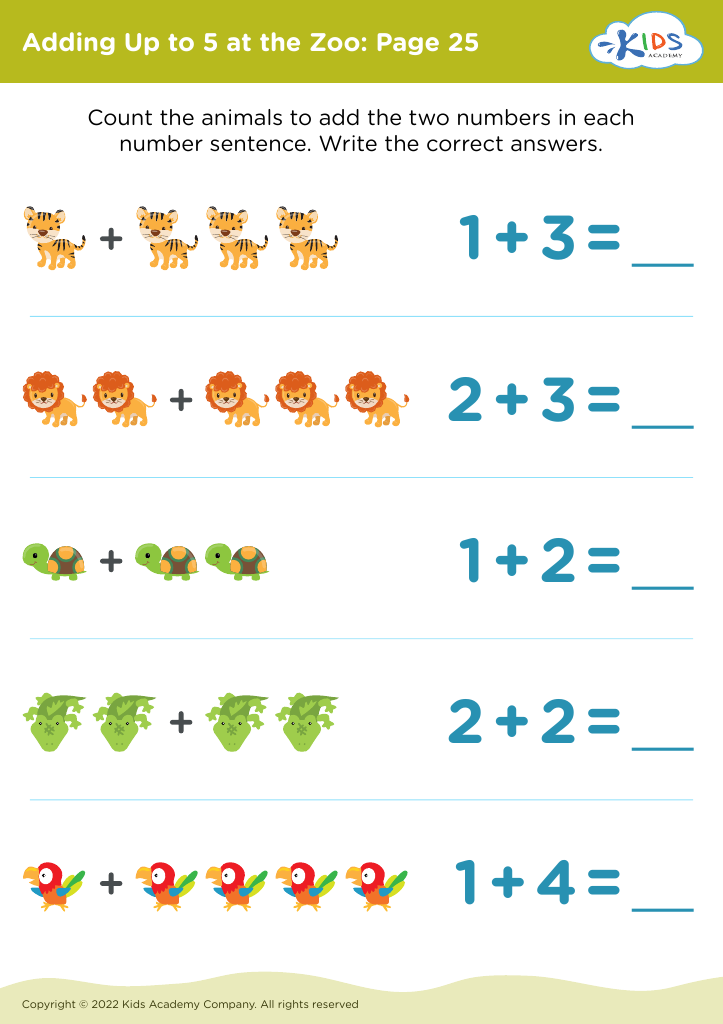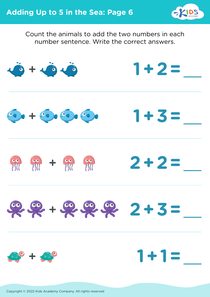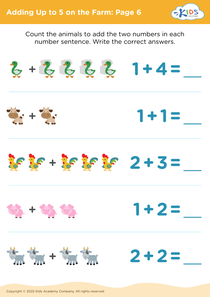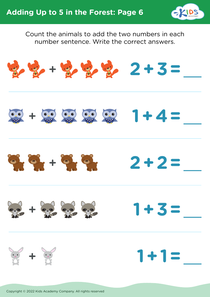Fine Motor Skills Adding at the Zoo Worksheets for Ages 5-6
4 filtered results
-
From - To
Enhance fine motor skills with our engaging "Adding at the Zoo" worksheets designed for children aged 5-6. These interactive activities not only promote mathematical understanding through fun addition exercises but also help young learners develop crucial hand-eye coordination and dexterity. As kids navigate colorful illustrations of zoo animals while solving addition problems, they refine their pencil grip and hand control. Our worksheets incorporate playful themes and creative designs to keep children motivated and excited about learning. Perfect for at-home practice or classroom use, these worksheets will make math a fun adventure for your little ones! Discover more and get started today!
Fine motor skills are crucial for young children's overall development, particularly in the ages of 5-6. Activities like “Fine Motor Skills Adding at the Zoo” engage children in fun, hands-on learning experiences that promote dexterity and coordination. Parents and teachers should care about these skills because they underpin many everyday tasks, such as writing, buttoning clothes, and using utensils—skills essential for independence.
When children participate in engaging activities like this one, they also enhance their cognitive abilities. Counting animals, recognizing numbers, and grouping them at the zoo setting allow them to practice math skills in a real-world context, making learning more relatable and enjoyable. This kind of experiential learning supports problem-solving abilities and critical thinking.
Additionally, fine motor tasks encourage perseverance and concentration, cultivated when children manipulate materials or complete challenges. When kids experience success with these skills, it boosts their confidence and self-esteem, shaping positive attitudes toward learning.
Moreover, involving parents in this process creates opportunities for bonding and reinforces learning at home. By focusing on fine motor skills through engaging and playful activities, we prepare our children not only for academic success but also for daily life skills that will benefit them as they grow.
